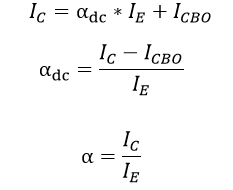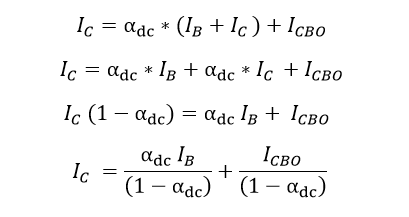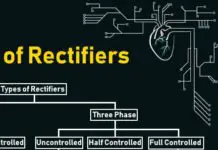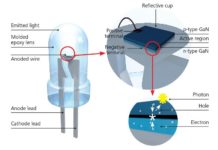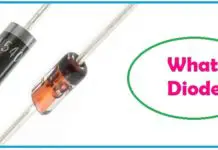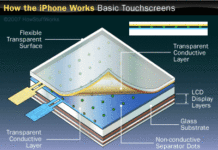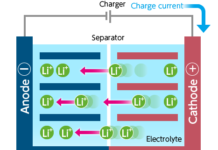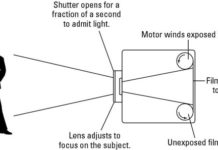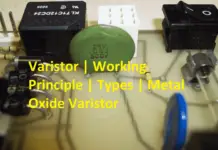Transistor Currents:
Transistors are nothing but a transferred resistor. It is a semiconductor device which is used to amplify a signal. Some time it is used in switching operation. In our last study we have seen, the transistor working principle, at we have finished at the type current flow. But in this we are going to talk about the transistor currents. Let’s begin the transistor current article.
Transistor current:
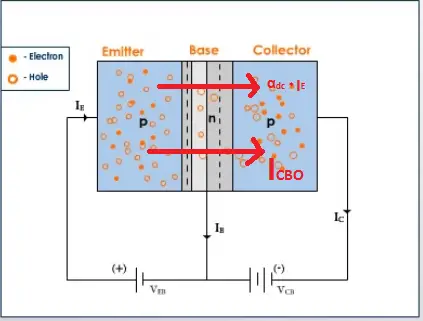
There are three different types of currents are flows in a transistor. Which are
- The current flow through emitter terminal is called Emitter current and it is denoted by IE
- The current flow through the collector terminal is called collector current, It is symbolized by IC
- Like that IB is referred to base current which flows through base terminal.
Here the direction of conventional current is always opposite to flow electron current, since
Also once again recall that a few parts of charge carriers from emitter recombine with holes in base region and remaining charge carriers flow through the collector. Therefore, almost all of IE crossed to the collector and small portion of IE flows into the base terminal. The current that leaves collector base junction αdc * IE and the value of αdc is typically 0.96 to 0.99.
In NPN transistor, junction J2 (collector-base) will be reverse biased, therefore there is a reverse leakage current ICBO (collector-base leakage current) flows towards the collector terminal. In PNP transistor the current flows due to the holes moving from n-types base to p-type collector.
Now the collector current is sum of the portion of IE which flows across the collector-base junction and the reverse saturation current. hence
Since ICBO << IC
Therefore, αdc is approximately equal to the ratio of collector current and emitter current. αdc is also referred to as the common base current gain.


